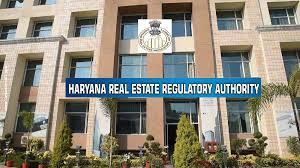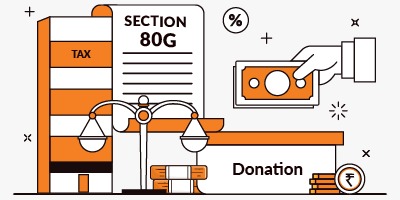Rajesh Bindal, J.@mdashThe petitioner has approached this Court challenging the order dated 28.1.2008 passed by the learned Additional Sessions Judge, Gurgaon whereby the appeal filed by the petitioner against rejection of his application for release on bail by the Principal Magistrate, Juvenile Justice Board/Chief Judicial Magistrate, Gurgaon, was dismissed.
2. The petitioner, who is a juvenile, is an accused in FIR No. 270 dated 11.12.2007 registered under Sections 302/34 IPC and 25/54/59 of Arms Act at Police Station, Sector 40, Gurgaon. He is a student of Class - 8 in Euro International School, Gurgaon. The allegations against the petitioner is that in a fight, Akash and the petitioner shot dead Abhishek son of Ravinder, their class mate with the use of revolver in the school premises. The application for bail filed by the petitioner was rejected by the Principal Magistrate, Juvenile Justice Board/Chief Judicial Magistrate, Gurgaon on 18.1.2008. In appeal against the order, the petitioner failed even before the Additional Sessions Judge, Gurgaon.
3. Learned counsel for the petitioner referring to Section 12 of the Juvenile Justice (Care and Protection of Children) Act, 2000 (for short, `the Act'') and relying upon judgments of Hon''ble the Supreme Court in Gopinath Ghosh v. The State of West Bengal, 1984 (1) RCR (Cri) 444 and this Court in Atul Kumar and another v. State of Haryana, 2003 (4) RCR(Cri) 404 and Ramesh alias Meshu v. State of Haryana, 2005 (1) RCR (Cri) 65 submitted that the bail to juvenile is a rule and rejection can only in case there are reasonable ground to believe that release of the juvenile is likely to bring him in association with any known criminal or expose him to moral, physical or psychological danger. The submission is that none of the ingredients is available which could enable the Courts below to form an opinion that there exist such circumstances which are sufficient to reject the bail application of the petitioner. He further submitted that the petitioner is a Class-8 student with no criminal background, even his parents are also not involved in any criminal activity. It would be in the fitness of things that the petitioner is kept at home in the company and supervision of his parents instead of keeping him in orphanage where he may come in contact with other criminals or orphans who may have some criminal background as well.
4. Hon''ble the Supreme Court in Gopinath Ghosh''s case (supra), considering the prayer for bail by a juvenile, who was an accused for offence committed u/s 302 IPC opined as under:-
"It clearly transpires from a combined reading of the sections hereinbefore extracted that where a Juvenile delinquent is arrested, he/she has to be produced before a Juvenile court and if no Juvenile Court is established for the area, amongst others, the Court of Session will have powers of a Juvenile court. Such a Juvenile delinquent ordinarily has to be released on bail irrespective of the nature of the offence alleged to have been committed unless it is shown that there appears reasonable grounds for believing that the release is likely to bring him under the influence of any criminal or expose him to moral danger or defeat the ends of justice."
5. This Court in Ramesh alias Meshu''s case (supra) while considering the prayer for bail by a juvenile accused for offence under Sections 376, 452 and 325 IPC opined as under:-
"I have heard the argument of the counsel for the parties and gone through the impugned orders passed by the Juvenile Justice Board as well as Additional Sessions Judge, Sonepat. In my opinion, rejection of bail application of the petitioner by the Courts below only on the ground that it will defeat the ends of justice, is wholly erroneous. The prosecution has not produced any material or evidence that release of the petitioner will defeat the ends of justice. The granting of bail to a juvenile is must notwithstanding anything contained in the Code of Criminal Procedure or in any other law for the time being in force. However, bail can only be declined in exceptional circumstances where it appears to the Court that the release of the petitioner is likely to bring him into association with any known criminal or expose him to moral, physical or psychological danger or that his release would defeat the ends of justice. In the instant case, there is no reasonable apprehension that the release of the petitioner will bring him into association with any known criminal or expose him to moral, physical or psychological danger. The only exceptional reason given by both the Courts below is that release of the petitioner will defeat the ends of justice. This conclusion also, in my opinion, is not based upon material or any reasonable grounds."
6. In Atul Kumar''s case (supra) where the juvenile therein was an accused for offences under Sections 302/323/147/149 IPC, this Court opined as under:-
"I am further of the view that there has to be some evidence on record showing that after the release on bail, the petitioners are likely to come in association with any known criminal or their release on bail would expose them to moral, physical or psychological danger or that their release would defeat the ends of justice. In a given case if the parents of the petitioners are also criminals either ex-convicts or members of a gang, it may be possible for the Court to refuse bail. Another example could be whether the petitioners have repeated the crime showing lapse on the part of the parents after their release while on bail, then the case may be covered by the exceptions carved out u/s 12 of the Act. However, in a case like the one in hand, where no material has been placed on record to show that the release of the `juvenile in conflict with law'' would defeat the ends of justice or any other exception, the petitioners cannot be denied the benefit of bail merely on the basis of conjectures or opinion formed by the prosecution or the Court. Reliance in this regard could be placed on the judgments in the case of Sahabuddin @ Shabboo''s case (supra) and Sanjeev Kumar''s case (supra).
7. In the present case, Principal Magistrate, Juvenile Justice Board formed an opinion that in case the petitioner is released on bail, he was likely to come in contact with known criminals. Similar opinion was formed by the Additional Sessions Judge while rejecting the appeal filed by the petitioner against the order of Principal Magistrate, Juvenile Justice Board rejecting his bail application. However, perusal of impugned orders shows that no material as such was produced by the prosecution to substantiate this claim and to bring the case of the petitioner within the exceptions carved out for rejection of the bail application of a juvenile who otherwise is to be released on bail as a matter of right. There is nothing on record to suggest that the parents of the petitioner have any criminal background. Further, there is no material on record on the basis of which Courts below opined that there is likelihood of petitioner''s coming in contact with known criminals. Though the incident in which the petitioner along with Akash killed their another class-mate is unfortunate, but still this Court is governed by the mandate of law as provided for under the Act. The case of the petitioner does not fall within the exceptions as carved out for rejection of the bail application.
8. Accordingly, it is directed that pending trial, the petitioner shall be released on bail to the satisfaction of Principal Magistrate Juvenile Justice Board/Chief Judicial Magistrate, Gurgaon on furnishing of bail bonds.

